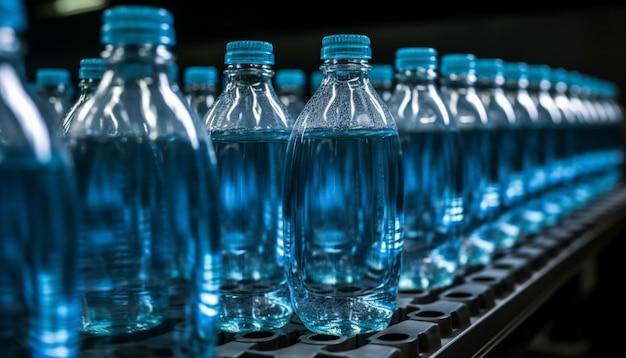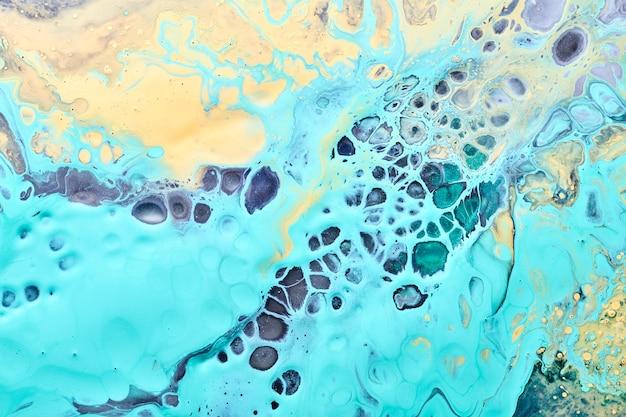Mixing water and isopropyl alcohol is a common practice in various situations, from cleaning solutions to homemade disinfectants. But what exactly happens when these two substances are combined? In this blog post, we will delve into the chemistry behind the interaction between water and isopropyl alcohol and explore the effects of their mixture.
We will also address some frequently asked questions, such as the solubility of different alcohols in water, the possibility of vinegar and alcohol mixing, the safety implications of using isopropyl alcohol on the skin, and how to make disinfectant spray with rubbing alcohol.
So if you’ve ever wondered what really goes on when water and isopropyl alcohol come together, you’ve come to the right place. Let’s dive in and uncover the science behind this common liquid duo.

What Happens When You Mix Water and Isopropyl Alcohol?
Isopropyl Alcohol and Water – A Duo That Packs a Punch!
Have you ever wondered what would happen if you mixed water and isopropyl alcohol? Well, get ready for some chemistry magic, because when these two liquids come together, things really start to heat up – metaphorically, of course!
The Science Behind the Mix
Isopropyl alcohol, also known as rubbing alcohol, is a handy substance with many household uses. It’s a colorless liquid with a distinctive smell and is commonly used as an antiseptic, disinfectant, and solvent. Water, on the other hand, is the element of life itself. We all know it as a tasteless, odorless, and transparent liquid that is essential for our survival.
When you mix isopropyl alcohol and water, something fascinating occurs. These two liquids form a homogeneous mixture due to their similar molecular structures. The water molecules, with their polar nature, attract and surround the isopropyl alcohol molecules, resulting in a fully blended concoction.
A Dilution Dilemma
One of the main effects of mixing water and isopropyl alcohol is dilution. The concentration of isopropyl alcohol in the final mixture will depend on the proportions used. Adding more water than alcohol will decrease the overall alcohol content, while adding more alcohol will, of course, increase it. So, depending on what you’re aiming for, you have the power to control the potency of your mixture!
Cooling It Down
Another interesting consequence of combining water and isopropyl alcohol is the cooling effect it produces. Isopropyl alcohol has a lower boiling point than water, meaning it evaporates faster. As it evaporates, it absorbs heat from its surroundings, including your skin. That’s why when you apply rubbing alcohol to your skin, you feel a refreshing and cooling sensation. It’s like a mini-spa treatment for your body!
A Great Cleaning Companion
When it comes to cleaning, the water and isopropyl alcohol combination proves to be a dynamic duo. Isopropyl alcohol acts as a powerful solvent, helping to dissolve dirt, grease, and grime. It’s commonly used to clean electronic devices, remove stubborn stains, and sanitize surfaces. By mixing it with water, you create a solution that can tackle a wide range of cleaning tasks. Talk about a cleaning buddy that goes above and beyond!
So, what happens when you mix water and isopropyl alcohol? You end up with a versatile, potent mixture capable of diluting, cooling, and cleaning. This fantastic duo joins forces to create a concoction that is both handy and effective. Whether you’re disinfecting, diluting, cooling down, or cleaning, water and isopropyl alcohol have got your back!
Note: Don’t forget to exercise caution when handling isopropyl alcohol, and keep it away from open flames or high temperatures. Safety first, folks!

FAQ: What happens when you mix water and isopropyl alcohol?
Introduction
In this FAQ-style section, we’ll explore some common questions related to mixing water and isopropyl alcohol. So, grab your curiosity goggles and let’s dive right in!
What alcohol is most soluble in water
When it comes to solubility, ethanol (commonly found in alcoholic beverages) takes the cake. It is highly soluble in water, making it the perfect companion for a night of merriment and spirited conversations.
Does vinegar and alcohol mix
Yes, vinegar and alcohol can happily mingle together. In fact, they can make for a potent cleaning solution. Just be careful not to confuse it with a cocktail—you definitely don’t want to serve this at a party!
Is isopropyl alcohol safe for the skin
Isopropyl alcohol, although useful for cleaning and disinfecting, can be harsh on the skin. It may cause dryness, irritation, or even allergic reactions. So, unless you want to sport a red and flaky complexion, it’s best to handle it with care or explore gentler alternatives.
How do you make disinfectant spray with rubbing alcohol
To make your own disinfectant spray, simply mix 70% isopropyl alcohol with water and add a few drops of your favorite essential oil for a pleasant aroma. Just remember, it’s for cleaning surfaces—not for a midnight spritz on your cologne collection!
What liquids do not mix with water
There are a few liquid rebels out there that refuse to befriend water. These include oil, gasoline, and certain cleaning solvents. They’d rather form their own little cliques than party in the water’s presence!
How much water does it take to offset alcohol
Ah, the eternal question. The answer depends on various factors, such as the type and concentration of alcohol, but generally speaking—water to the rescue! Diluting the alcohol with water can help reduce its potency, making it more manageable. Just remember, it’s all about finding the right balance.
Can you dilute 70 isopropyl alcohol with water
Absolutely. In fact, diluting a 70% isopropyl alcohol solution with a little water can make it more effective as a disinfectant. Plus, it gives you the opportunity to do your own “chemistry experiment” right at home. Science can be fun, right?
Why does the volume decrease when you mix water and alcohol
When water and alcohol meet, things start to get a little cozy. They form bonds and snuggle up together, resulting in a decrease in volume. It’s like a romantic squeeze—just without the candlelit dinner!
What are two things that would not dissolve in water
Water, despite its universal solvent claims, has its boundaries. Two common troublemakers that won’t dissolve in water are oil and sand. They prefer to stick to each other, forming a rebellious duo that water can’t seem to separate.
Does alcohol make poop
Well, let’s just say alcohol and poop aren’t the best dance partners. While alcohol can increase the frequency of bowel movements (due to its effect on the digestive system), the primary result of a night out on the town might be more of a headache than a direct impact on your bathroom habits.
What happens when you drink rubbing alcohol
Oh dear, here’s another case where curiosity doesn’t lead to pleasant results. Drinking rubbing alcohol can be extremely dangerous and toxic, causing severe health issues or even death. So, let’s stick to using it for cleaning purposes only, shall we?
Is it safe to mix isopropyl alcohol and water
Yes, it’s perfectly safe to mix isopropyl alcohol and water. In fact, this dynamic duo is often used for various purposes, such as cleaning wounds or disinfecting surfaces. Just remember, they’re like two separate entities—mix, but don’t make them your new drinking buddies!
What happens when ethanol and water are mixed
Ethanol and water have a special relationship. When they mix, they create a homogenous solution without any separation. It’s a true match made in chemistry-land. Who said love only existed between humans?
Can I put isopropyl alcohol in my gas tank
Whoa there, cowboy! Pouring isopropyl alcohol into your gas tank is a recipe for disaster. It can cause engine damage or even lead to a fiery situation you definitely don’t want to experience. Stick to fuel meant for your vehicle and leave the alcohol for other creative endeavors!
What happens if you add water to alcohol
When you add water to alcohol, they engage in a little tango called “dilution.” The presence of water reduces the alcohol’s concentration, making it less potent. It’s like watering down the party—sometimes a good thing, sometimes not so much.
Can I dilute 99 isopropyl alcohol with tap water
Yes, you can dilute 99% isopropyl alcohol with tap water, but remember to use caution. Make sure the water is clean and free from impurities that could compromise its effectiveness. Safety first, my friend!
Why is isopropyl alcohol mixed with water
Mixing isopropyl alcohol with water serves a few purposes. Firstly, it reduces the concentration of the alcohol, making it less harsh on the skin or surfaces. Secondly, it enhances its ability to penetrate certain materials for better cleaning or disinfecting. Teamwork makes the dream work!
How do you make 70% alcohol
To make a 70% alcohol solution, simply mix 7 parts of 99% isopropyl alcohol with 3 parts of water. Think of it as finding the perfect balance—not too strong, not too weak. Just right for all your cleaning and disinfecting needs!
Can you mix isopropyl alcohol and baking soda
Mixing isopropyl alcohol and baking soda can create a magical cleaning duo. It can help remove stubborn stains, neutralize odors, and give your surfaces a fresh start. It’s like having a cleaning superhero on your side—capable of tackling the toughest tasks!
Is isopropyl alcohol toxic to the skin
Isopropyl alcohol might not win any “gentle giant” awards, but as long as you use it in moderation and follow proper safety precautions, it shouldn’t pose a significant risk to your skin. Just don’t expect it to join the ranks of luxurious skincare products anytime soon!
Does alcohol dissolve in water
Absolutely! Alcohol and water get along like two peas in a pod. They mix and mingle so well that sometimes you can’t even tell them apart. It’s like the Kardashian-Jenner family—blending seamlessly, with their own unique flavors.
Does mixing alcohol with water make it weaker
Yes, mixing alcohol with water dilutes its strength. Think of it like diluting a strong cup of coffee with a little water—a more manageable and mellowed experience. Just remember, moderation is key, whether it’s in coffee or cocktails!
Does alcohol absorb water
Believe it or not, alcohol has a sneaky trick up its sleeve. It loves water so much that it can absorb moisture from the air, leading to a phenomenon known as hygroscopy. It’s like alcohol’s own form of a water magnet—keeping things interesting and unpredictable!
Can I add water to 91 isopropyl alcohol
Absolutely! Adding water to 91% isopropyl alcohol can help reduce its concentration, making it a bit less potent and more versatile. It’s like giving your alcohol a makeover, turning it into a more well-rounded crowd-pleaser!
Can you mix isopropyl alcohol and bleach
Hold your horses—mixing isopropyl alcohol and bleach is a big no-no. Combining these two can create a chemical reaction that releases toxic chlorine gas. And trust me, you definitely don’t want to invite that party into your home. Keep them separate and far away from each other!
Conclusion
Well folks, it looks like we’ve covered quite a bit of ground on the intriguing topic of mixing water and isopropyl alcohol. From solubility to cleaning concoctions, hopefully, your curiosity has been quenched. Just remember to handle these substances responsibly, and may your adventures in the world of mixology always lead to a cleaner, safer, and happier environment! Cheers to your newfound knowledge!
***Note: This article is for informational purposes only and should not be considered as professional advice. Always exercise caution and follow proper safety guidelines when dealing with chemicals.